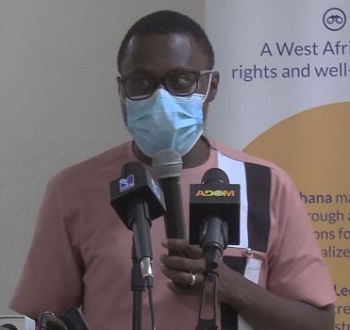Inequality, poverty reduction require strong political will – SEND Ghana

Dr Emmanuel Ayifah
Following the commemoration of this year’s International Day for the Eradication of Poverty on Monday, October 17, 2022, Civil Society Organisation, SEND Ghana, wants the government to increase investment and expand coverage for social protection interventions in the country.
It has asked the government to extend programmes such as the Livelihood Empowerment Against Poverty Programme (LEAP) and the Ghana School Feeding Programme (GSFP) to all eligible beneficiaries and also ensure “timely release of budgets for the smooth implementation of child protection policies” and other welfare programmes across sectors.
The organisation further urged Parliament to pass the Social Protection Bill into law to help “streamline social protection financing and delivery.”
In a statement, Dr Emmanuel Ayifah, Deputy Country Director, SEND Ghana, noted that countries around the world had made progress in the fight against poverty and inequality but global events such as COVID-19, climate change, and conflicts had “reversed decades of progress in ending the menace.”
Referring to Ghana’s poverty statistics of about 25.5 per cent as put together by the World Bank, he noted that “the situation could be dire if the government did not take urgent actions to address the current economic crisis, exacerbated by the worsening cedi depreciation, high inflation rates, and hikes in food prices.”
Social protection systems, he said, remained an important tool in tackling poverty and reducing the impact of economic meltdown on the poor and vulnerable who often fell below the poverty line, however, the country’s social protection was still fraught with challenges.
“The effectiveness of Ghana’s social protection delivery is minimised by weak legal frameworks, inadequate budgets, low coverage, and insufficient grant size characterised by erratic and irregular fund releases.
“Collectively, these undermine the potential of the interventions in addressing poverty and vulnerability and in contributing to overall national development,” he noted.
For this reason, he maintained that there should be more combined efforts to eradicate extreme poverty by 2030 in line with the Sustainable Development Goal One (SDG 1).
Touching on the government’s current discussion with the International Monetary Fund (IMF) for an economic support, Dr Ayifah said the discussions should “seek to boost social spending and protect the vulnerable while creating conditions for an inclusive growth.”
“Some critics have contended that, countries under IMF-supported programmes were required to cut back spending on social protection programmes or postpone commitments to expand social protection, as the IMF did not provide adequate budget flexibility to expand social Protection.
“We would like to emphasise the importance of safeguarding social spending in any IMF supported economic reform programme that the government signs on to.
“We believe that poverty and inequality are not inevitable. They are the result of deliberate decisions or inactions that disempower the poorest and marginalised in our societies and violate their fundamental rights. With a strong political will, this can be reversed,” he stressed.
This year’s International Day for the Eradication of Poverty was themed: “dignity for all in practice.” It was to remind countries to protect and safeguard the fundamental rights of the people, including lifting them out of the situation of extreme poverty and hunger, and increasing their choice to essential social services.
By Spectator Reporter














